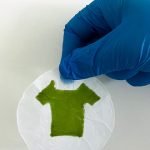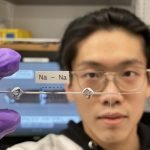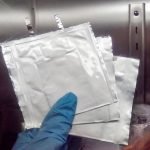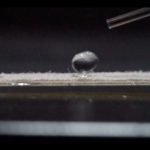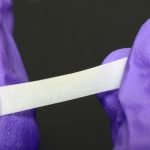Scientists develop new metal-free, recyclable polypeptide battery
The introduction of lithium-ion (Li-ion) batteries has revolutionized technology as a whole, leading to major advances in consumer goods across nearly all sectors.
Battery-powered devices...
Your future clothes could be made of algae
Rochester researchers use 3D printing to create a novel, environmentally friendly material made of algae that has applications not only for energy and medicine,...
Scientists develop stable, efficient, anode-free sodium battery
When it comes to batteries, lithium-ion are the best we have as far as energy density and convenience.
For now.
The Washington University in St. Louis...
Battery parts can be recycled without crushing or melting
New recycling method replenishes lithium in electrodes while keeping existing structure intact – and performance is nearly as good as new ones
The proliferation of...
New optical sensors make hydrogen vehicles safer
Hydrogen as a clean, renewable alternative to fossil fuels is part of a sustainable-energy future, and very much already here.
However, lingering concerns about flammability...
New waterproofing solution is 90% cheaper to produce
A new coating solution discovered by researchers at Simon Fraser University can transform regular materials into waterproof surfaces.
The product will be cheaper to produce,...
Scientists develop world’s first fully recyclable printed electronics
Engineers at Duke University have developed the world's first fully recyclable printed electronics.
By demonstrating a crucial and relatively complex computer component (the transistor), the...
New synthetic material mimics lobster underbelly’s stretch and strength
An MIT team has fabricated a hydrogel-based material that mimics the structure of the lobster’s underbelly, the toughest known hydrogel found in nature.
A lobster’s...
Autonomous vehicles could navigate beneath Arctic ice without GPS
MIT engineers have developed a navigational method for autonomous vehicles to navigate accurately in the Arctic Ocean without GPS.
There is a lot of activity...
Scientists develop a new load-bearing material
Engineers have developed a new material that mimics human cartilage - the body's shock absorbing and lubrication system, and it could herald the development...



